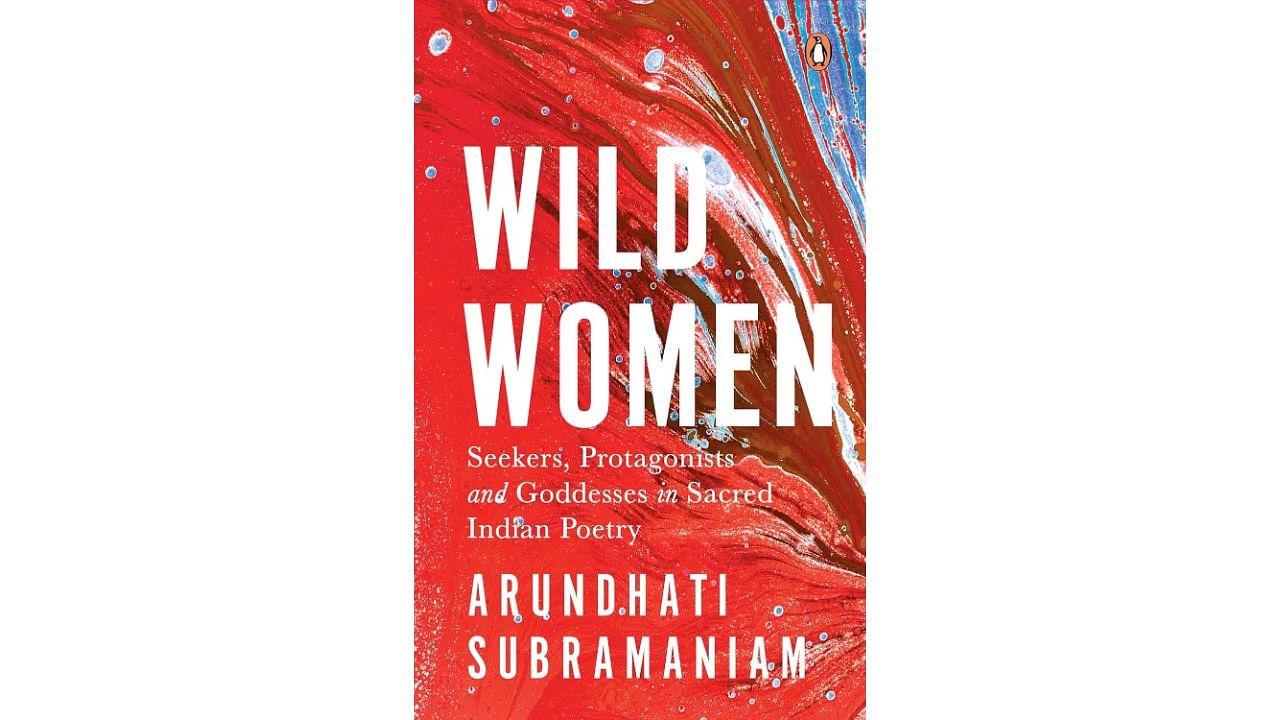
Wild Women
I had always imagined that I would come to Bhakti poetry later in life. It took me a while to appreciate that each doha (couplet) from Kabir Das printed in my school textbook initiated me into a poetic and spiritual movement that dates back to the sixth century.
It was only in adulthood that I comprehended how pioneering, profound, and ecstatic the movement was. Bhakti poetry started in South India and then spread across the subcontinent. It wasn’t just the saints singing about their relationship with the divine. It was often people who might not have had access to the divine. Most importantly, it was women.
Wild women. Women who wrote with flair, passion, and exuberance. Assuming this is a poetic movement alone would be a disservice. This is as much a cultural as a literary movement, including religion, language, social conscience, and philosophy. In her Preface, poet Arundhathi Subramaniam says, “Welcome to Wild Women — women whose language is (and how could it be otherwise?) poetry.”
This “baggy” anthology, to borrow Ms Subramanian’s words again, is close to 400 pages. It is divided into three parts. Part One features Mystics, Seekers, and Devotees. Two is Women as Protagonists, and Three features Goddesses. In her note on the selections, Arundhathi Subramaniam says the poems are meant to offer a taste of a poet’s work, in the hope that it will egg the reader towards more in-depth research on the poet and their work.
The way the devotee linguistically engages with the divine, in its multiple forms and mores, most appeals to me in the anthology. The book features brilliant translations by poets such as Mani Rao, Dibyajyoti Sarma, K Srilata, Smita Dalvi, Anupama Raju and Mustansir Dalvi, to name a few.
In A K Ramanujan’s translation of Akka Mahadevi’s work, we read, “Better than meeting/and mating all the time/is the pleasure of mating once/after being far apart. When he’s away/I cannot wait/to get a glimpse of Him. Friend, when will I have it/both ways, be with Him/yet not with Him, my lord white as jasmine?”
It seems like this question is answered in Molige Mahadevi’s poem. The 12th-century poet and her husband gave up a life of privilege in Kashmir and moved to Karnataka. Molige Mahadevi is one of the 33 women associated with the Sharana movement in the state. In one of her poems, she asks, “O self-existent sacred form/ at the base of my palm,/ why doesn’t your light/reveal to my eyes the path? Is it my inertia? Or is it your innate nature? Is it your mischief that plays tricks? It is because you are not within me? Is the separation simply because/ I am not as virtuous as you? O beloved of my lord,/ the twice-pristine Mallikarjuna, / become one with me.” (Translated by Ahalya Ballal.)
In the second section, where women are protagonists, we meet male poets who “invoke female characters or channel the female voice to declare their longings to experience the condition of femininity.” The women we meet in the works of Jayadeva and Nammalvar, Bulleh Shah and Amir Khusrau, are anything but patient, long-suffering victims, pining away as they lament their fate. Their agency is such an attractive hallmark of this section.
In the final section of the anthology, we meet the goddesses. We read the Devi Mahatmyam, written between the 4th and the 6th century, and considered one of the earliest texts dedicated to the sacred feminine. In the unique Buddhist text, Chandamaharoshana Tantra, the Goddess speaks and demands adoration. “Women are the Buddha,/women are the Sangha,” she declares with surety. From the Khasi Mei Hukum or Earth Mother to Subramania Bharati’s Parashakti, this section is replete with divine feminine power.
Wild Women is erudite, eloquent, mystical, and magnificently memorable — a treat for the explorer, the apprentice, as well as the expert.
World in Verse is a monthly column on the best of new (and old) poetry.
(The writer is a poet, teacher, voice actor and speaker. She has published two collections of poetry. Send your thoughts to her at bookofpoetry@gmail.com)